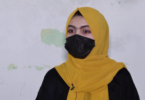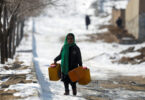KABUL (Pajhwok): At least 109 people committed suicide during the last 12 months in the country, with half of the deaths blamed on domestic violence and mental illnesses, Pajhwok has learnt.
Pajhwok Afghan News findings show the suicide incidents occurred in 24 provinces of the country, 25 percent happened in Faryab and 72 percent of the people committing suicides were under 35 years of age.
However, committing suicide is a major sin in Islam. Religious scholars and psychologists say the government, media, scholars and psychologists have the responsibility to provide necessary awareness to people in order to prevent such unfortunate incidents.
Full report
Pajhwok compiled reports of suicides published from July 23 last year until the same date this year, but it was possible some incidents went unreported.
The findings show 109 people committed suicide during this period — 56 boys and elders and 53 girls and women.
About 47 of the people who committed suicide were aged 12 to 19 years old, 15 were aged between 20 and 28 years, the exact age of 12 people was not clear and nine people were aged 50 to 58 years, five people 30 to 35 years old.
Based on information, four people aged 40 to 45 and one person aged 74 were among the 109 people who committed suicide.
According to reports, most of these people committed suicide due to domestic violence.
Thirty-three people claimed their own lives due domestic violence, 20 people due to mental problems, two people due to economic problems, a girl committed suicide to escape forced marriage and one person took the extreme step for being opposed to the Islamic Emirate.
A drug addict committed suicide and another person killed himself after a sexual assault, but no reason was cited for 50 suicides in the reports.
The most (27) people committed suicide in Faryab, eight each in Badghis and Kandahar, seven each in Daikundi and Jawzjan, five each in Badakhshan, Parwan and Ghazni, four in Balkh, three each in Bamiyan, Farah, Ghor, Kunduz, Maidan Wardak, Nangarhar and Sar-i-Pul, two each in Helmand, Kapisa, Panjsher and Takhar and one each in Baghlan, Nimroz, Paktia and Uruzgan provinces.
Pajhwok received no reports about suicides from 10 provinces of the country (Herat, Kabul, Khost, Kunar, Laghman, Logar Nuristan, Paktika, Samangan and Zabul) in the last 12 months.
Most of the suicide incidents happened in May of this year
Last year, two people committed suicide in July, six in August, eight in September, six in October, seven in the month of November, five in the month of December, 14 in January, six in February and this year, four people committed suicide in April, 15 in May, 21 in June and 15 in July.
Pajhwok’s findings show 64 people killed themselves by hanging, 20 by shooting themselves and 14 people by consuming poison, two by self-immolation, one person by throwing himself into a river and another by jumping from a roof. The reason for suicide of seven people has not been revealed.
Pajhwok did not collect data about suicides in 1401 solar year, but Tolo News published a report in August last year that 42 people committed suicide in Afghanistan.
Before this, there were suicides in Afghanistan, but exact numbers have not been published.
For example, a report published in January 2019 said that in 10 months about 50 people committed suicide in Herat alone.
Religious scholars: Suicide is a great sin
Religious scholar Sheikh al-Hadith Abdul Sabour Hamasi told Pajhwok that suicide was a major sin after polytheism and disbelief.
He added: Allah (swt) says in the twenty-ninth verse of Surah Al-Nisa: Do not kill yourselves, Allah is merciful to you. It is also mentioned in Surah Al-Baqarah verse 195 that spend in the way of Allah. Do not throw yourself into destruction with your own hands, do good deeds, Allah loves those who do good deeds; Likewise, the Prophet (PBUH) said, “Whoever kills himself with something, he will be punished for it on the Day of Resurrection.”
Hamasi called economic problems, family disputes, failure to achieve a goal, severe disappointment, extreme fear, mental illness, failure in love, not knowing the main purpose of life, sexual abuse, ignorance from religion and weak connection with religion, depression, lack of motivation, failure and frustration as main reasons for suicide.
According to him, sharing one’s problems with family members, relatives, friends and other people can reduce human suffering.
He said the prevention of suicide was firstly possible through good religious understanding, secondly, reviving the sense of sympathy in the nation and thirdly, establishing a righteous community, and fourthly, strengthening the family system to support each other and extend a helping hand in times of pain and suffering.
Hamasi added: “Ulema, teachers, radio, television and all other media outlets should collectively work to achieve this target, Media play huge role in the reformation of society and youth, we should use all our capacities, talent and energy in the interest of our nation and building positive thinking, but unfortunately we use media just for our political targets, we use media to promote ourselves and our interests, we don’t use media for promoting positive image, religious teaching, national interest, and raising our youth and children. Media and management are the miracles of the 20th century but is there anyone who could use them in the interest of nation and religious.”
Another religious scholar Qari Abdul Matin said there are several factors behind committing suicide. There are two main factors one is materialistic factor and another is spiritual.
Materialistic factors are poverty, debt and economic problems while spiritual factors included failed love, stress and other similar factors.
He said committing suicide is a major sin in Islam and there is no chance to be pardoned while in other major sins there are chances for pardon.
After committing major sins like adultery, robber and others individual has the chance to pardon because of being a live while after committing suicide the person is no more alive and has no chance of pardon.
“The source and the reference of the matter vary, sometimes the family cannot be affective in this regard, it could even deteriorate the situation so the better is that the affected person first should talk to psychologist, influential person, ulema and wise person and then the friends or psychologist could talk to the family of affected person in order to resolve the problem and find a solution.”
Referring to the ways of prevention from suicide, he said: “An individual should be kept away from disappointment, in schools, universities and madreassas curriculum that could help prevent the suicide should be introduced, another method is that every school should have a psychology teacher who will talk with students in group of individually who suffer from depression, disappointment and other similar problems.”
Everyone has responsibility, the media officials through their media platform, the scholars through their podiums, the government through schools, universities, colleges, mosques, seminars, and conferences should convey messages that discourage committing suicide among people.
Ulema on the bases of religious principles should discourage committing suicide. Elders and youth go to mosques where they could be informed by religious scholars about the consequences of committing suicide.
Naheed Nadim, a private university teacher, said committing suicide had become a huge challenge worldwide and nearly 90 percent people who suffer from psychological problems committed suicide.
She added people who committed suicide suffer from deep depression before committing suicide.
She linked increased in psychological pressure in young people, the lack of regular work plan in the life, deep depression, unemployment, lack of purpose, failure in relationships, guilty feeling, and economic problems in adults as some factors behind growing suicide in youth.
Regarding suicide prevention measures she said: “An individual’s intend to commit suicide doesn’t do it suddenly, some signs appear before committing suicide in that individual, he or she make a plan, cut some relationship, sell his precious items or gift it to someone, sometimes adopt calmness or logical environment, now a family or friends should understand this type of condition and jump into the help of family member if these type of sings appeared, they should talk to this persons suffering from this type of condition and explore solution for the problem,” said the university teacher.
She also said sometimes you don’t know who wants to commit suicide, but the family feels that the person is very uncomfortable, his condition is not good, or they notice some other strange activities. This person should be referred to a doctor or a psychologist to help him and prevent him from committing suicide.
She said that committing suicide was not an ordinary problem, it has many causes that must be addressed, every responsible individual in a society was responsible for it, family members, teachers, university professors and religious scholars, religious scholars should preach in their mosques, in their sermons, why is suicide is forbidden, why is it considered a great sin, and what is the major handicaps of this sin?
She said government has the responsibility to generate jobs and education opportunities for youth. when an individual is busy in work or study than he or she never think about committing suicide.
She termed the role of psychologist vital, there is need for organizing seminars and workshops in schools and universities to discourage committing suicide among youth and show them the right direction.
Zabihullah Mujahid, spokesperson of the IEA, with deep grief and sorrow said that some people committed suicide due to family violence and issues in some parts of the country.
Mujahid also agreed that media and other relevant institutions should work together to spread awareness among people regarding the consequences of committing suicide.
“IEA has the responsibility and it strive to convey its message to the people, media also has a role to play in this regard, IEA is also working over the factors that forced people to commit suicide and efforts would be made to eradicate factors to forced people to commit suicide,” he said.
According to the WHO report every year over 700,000 people worldwide commit suicide.







